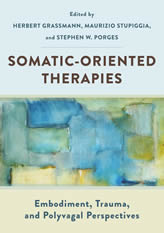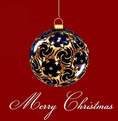Life Notes: Always Home for the Holidays
“When I was a child, Christmas happened on Christmas Eve. Mom, dad, sister, and I piled into the car and drove around the empty streets looking for Rudolf’s nose. I remember the silence illuminated by twinkling Christmas trees in windows and the slow, steady headlamps of whatever Chrysler dad was driving that year. But we were looking for the special light. The red one. Since we lived beneath the flightpath of the San Jose airport, it was not hard to find red blinking lights in the sky. Every year the question remained, “Which one is Rudolf’s nose?” It didn’t matter. My sister, Jenny, and I usually pointed one out and exclaimed, "There it is!" Mom and dad always answered with, “Let’s drive around a bit more, look at the neighborhood Christmas lights to give Santa time to bring your presents.” We did not complain because we knew that gifts were waiting under the tree when we returned home. It was like magic.
Open the Gift of Mindful Awareness
It’s already starting. Holiday decorations are showing up at the stores, music is playing at the mall, pumpkin lattes abound. The cultural and familial buildup to this season is magnified every year and, for many people, becomes totally overwhelming.
The experience of “too much” can replicate traumatic overwhelm in our nervous system, creating a whole season of nervous system dysregulation. This dysregulation then creates heightened emotions and reactivity (“What!? They didn’t make a vegan pumpkin pie??!”), depression and anxiety (“They don’t like my gift or I have to get the perfect gift”) and often a desire to literally escape the season’s events (fleeing by not going to the party) or a desire to dissociate (fleeing by leaving your body - I’ll just be on my phone for the whole dinner).
How can we assist our clients and ourselves in navigating this extended stressful season?
Happy Holidays: A Somatic Approach to Surviving and Thriving in the 2019 Season
“You can’t pour from an empty cup.”
“Put on your oxygen mask first.”
Phrases like these suggest an overly simplistic and logical approach to navigating what might be a stressful holiday season in our lives, but as the readers of this publication are well aware, there is a difference between the cognitive understanding of something and the embodied experience of it.
Over Coming the Obstacles to Self-Compassion
To start, I think it’s useful to understand what compassion is and what it is not. My working definition of compassion represents tender, empathic, and caring sentiments. It involves loving feelings that emerge when an injury (physical, emotional, or spiritual) is recognized and nurtured. Compassion is bringing a concerned, reinforcing spirit in the presence of wounding.
Human Baby, Human Being . . .
Matthew Appleton in conversation with Emma PalmerThe 8th and 9th of June 2019 will see the hosting of a fascinating two-day conference here in Bristol in England. The Human Baby, Human Being: Contributions from the emerging field of pre and perinatal psychology conference is being organised by Conscious Embodiment Training and ehealth Learning. An important aim of this landmark event is to bring together professionals interested in the long-term effects of prenatal and birth experiences.
Send Your Worrywort on Holiday
Worry can plague you. It digs and jabs, disrupts and jumbles: your sense of serenity dislodged. According to Rick Hanson, PhD, anxiety—a form of worry—allowed our ancestors to survive. Being able to sense danger, to determine if it was safe to approach, to avoid or move on allowed our ancestors to see another day. But when we focus on the bad, the good gets left behind. Luckily our brain can be trained . . .
Curiosity is one way out of Stuckness
One of the top complaints I hear from people who come into my office is “I’m stuck.” What they are saying without realizing it is that they’re stuck in repeating scenes with repetitive themes in their lives, either with the same or different people, over and over again.
Being a Captive of Our World
Where do you feel like a captive of your world? is it that you cannot quit your job? your relationship? your way of being with your parents? Your health? Where does it feel like you have no power? Where do you feel like you can change everything else about your life, but this one thing and you’re stuck with it?
Being with Helplessness
Living in a world of uncertainty, a world filled with violence and struggle, natural and human-made disasters, it can be easy to feel a sense of overwhelm and anger or perhaps a sense of collapse and helplessness in the face of such adversity. While some may set their feelings aside, maybe runaway by numbing out with food, drugs, alcohol, sex, etc., others may feel an intensity, a rage that compels them to fight against whoever or whatever stands in their way. Others may simply put their head in the proverbial sand or hang limp as if playing possum and yield to the dangers around them.
911 Memorial: Mt Grant Challenge 2018
Writing this post, I sense my heart is open, my soul calm, my spirit fulfilled, my being immersed in the gratitude for all that is here and now, in this moment, and for all who have given and continue to give their life, their liberty, their freedom to protect all of us, all over the world.













